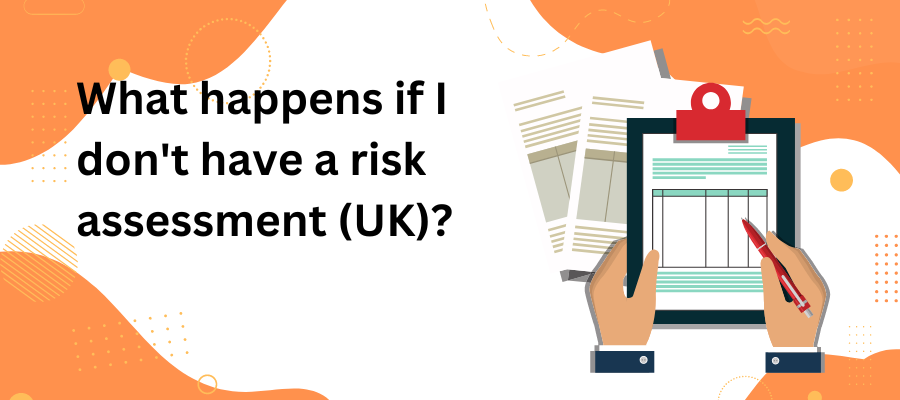In the United Kingdom, having a risk assessment is not just a good practice, it is a legal requirement. Failing to have a comprehensive risk assessment can have serious consequences for both individuals and businesses. This article will guide you through the process of understanding risk assessment, the legal implications of not having one, the consequences of non-compliance, and the importance of conducting a proper risk assessment. Let’s dive in to explore why having a risk assessment is crucial for businesses in the UK.
Understanding Risk Assessment: An Overview
Risk assessment is a systematic process that involves identifying hazards, evaluating risks, and implementing control measures to mitigate those risks. It is a proactive approach to ensure the safety and well-being of employees, customers, and the general public. By identifying potential hazards and taking appropriate measures, businesses can reduce the likelihood of accidents, injuries, and costly legal battles.
Definition of Risk Assessment
Risk assessment can be defined as the process of identifying potential hazards, evaluating the associated risks, and implementing measures to eliminate or control those risks. It involves a careful examination of the workplace environment, the activities performed, and the potential harm that could arise.
Importance of Risk Assessment in the UK
Risk assessment is not just a legal requirement but also a fundamental aspect of managing health and safety in the UK. It helps businesses identify hazards, evaluate risks, and implement control measures to protect the well-being of employees, contractors, and members of the public who may be affected by their activities. Failure to conduct a risk assessment can have severe consequences.
Legal Implications of Not Having a Risk Assessment
In the UK, the legal framework surrounding risk assessment is governed by two primary pieces of legislation: The Health and Safety at Work Act 1974 and The Management of Health and Safety at Work Regulations 1999. Non-compliance with these regulations can lead to serious legal consequences.
The Health and Safety at Work Act 1974
The Health and Safety at Work Act 1974 is a cornerstone of health and safety legislation in the UK. It requires employers to ensure the health, safety, and welfare of their employees, as well as others who may be affected by their work activities. The Act places a legal duty on employers to assess and manage risks in the workplace.
The Management of Health and Safety at Work Regulations 1999
The Management of Health and Safety at Work Regulations 1999 provides further guidance on how employers should assess and manage risks in the workplace. These regulations require employers to conduct a suitable and sufficient risk assessment, taking into account the nature of the work, hazards present, and the number of employees or others who may be affected.
Consequences of Non-Compliance with Risk Assessment Regulations
Failure to comply with risk assessment regulations can have significant financial and reputational consequences for businesses. Let’s explore the potential penalties and the impact on business reputation.
Fines and Penalties
If a business fails to comply with risk assessment regulations, they can face hefty fines and penalties imposed by the Health and Safety Executive (HSE). The severity of the penalty depends on the level of non-compliance and the potential harm that could arise from the failure to have a risk assessment. Fines can range from thousands to millions of pounds, which can have a crippling effect on a business’s finances.
Impact on Business Reputation
Having a reputation for not prioritizing health and safety can have long-lasting negative effects on a business. Customers, clients, and potential investors may be hesitant to work with a business that has a history of non-compliance and putting people at risk. Business reputation is built on trust, and being known as a responsible and safety-conscious organization is invaluable for long-term success.
How to Conduct a Proper Risk Assessment
It is essential for businesses to conduct a proper and thorough risk assessment to ensure compliance with the law and maintain a safe working environment. Let’s explore the key steps involved in conducting a risk assessment.
Identifying Hazards
The first step in conducting a risk assessment is to identify potential hazards in the workplace. This could include physical hazards, such as machinery or chemicals, as well as non-physical hazards, such as stress or ergonomic issues. It is important to engage with employees and gather their input, as they often have valuable insights into the hazards they encounter in their work.
Evaluating Risks
Once hazards have been identified, it is necessary to evaluate the associated risks. This involves considering the likelihood and potential consequences of an incident occurring. A risk matrix or other suitable tools can be used to assess and prioritize risks based on their severity and likelihood.
Implementing Control Measures
After evaluating risks, it is crucial to implement appropriate control measures to mitigate or eliminate those risks. Control measures can include engineering controls, administrative controls, and personal protective equipment. Regular monitoring and review of control measures are necessary to ensure their effectiveness in reducing risks.
In conclusion, not having a risk assessment in the UK can have severe consequences for businesses. It is vital for employers to understand the legal requirements surrounding risk assessment and the potential financial and reputational impact of non-compliance. By conducting a proper risk assessment, businesses can protect their employees, comply with the law, and safeguard their reputation. Remember, prevention is better than cure, and a comprehensive risk assessment is an essential tool for maintaining a safe and healthy working environment.
Looking for a quick and easy way to create, manage and share RAMS?
Watch a quick 3 min video 👇



